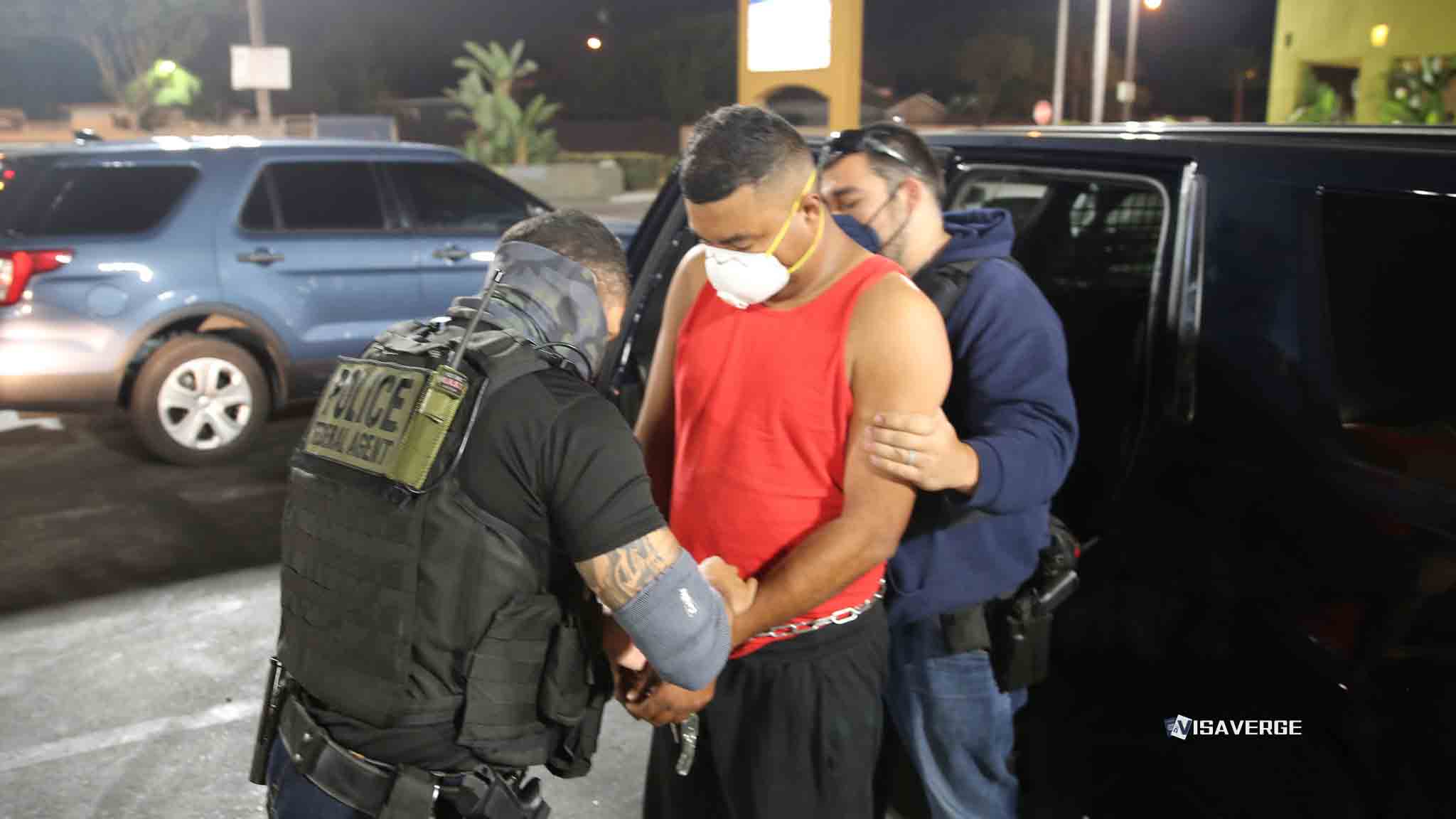Christian refugees face new and severe barriers to entering the United States 🇺🇸 as a result of sweeping changes to U.S. immigration policy under the Trump administration’s second term, which began in January 2025. These changes, which include the suspension of the U.S. Refugee Admissions Program (USRAP) and strict limits on asylum access, have left thousands of persecuted Christians and other religious minorities stranded abroad or stuck in dangerous conditions at the border.
On January 20, 2025, President Trump signed an executive order that suspended USRAP, halting nearly all refugee admissions except for a few rare, case-by-case exceptions. This move immediately blocked Christian refugees fleeing violence and discrimination in countries such as Iraq, Syria, Egypt, and parts of Africa from resettling in the United States 🇺🇸. The policy shift follows a similar pattern from Trump’s first term, when Christian refugee admissions dropped by 78%, according to official data.

The Biden administration had previously set a refugee admissions ceiling of 125,000 for fiscal year 2025, aiming to restore the U.S. role as a safe haven for those fleeing persecution. This plan included special allocations for regions with high numbers of Christian refugees, such as the Near East and South Asia. However, the Trump administration’s executive order has put these plans on hold, freezing the admissions process and leaving many families in limbo.
Ports of entry along the U.S.-Mexico border are now closed to most asylum seekers, including Christians escaping religious persecution. Customs and Border Protection (CBP) officials have been given new authority to expel people back to Mexico without placing them in removal proceedings, which means they cannot even begin the process of seeking asylum. The Trump administration has also brought back the “Remain in Mexico” policy, forcing asylum seekers to wait in Mexico—often in unsafe and unstable conditions—while their cases are processed.
The administration has also expanded the use of expedited removal, a process that allows Immigration and Customs Enforcement (ICE) to quickly deport individuals who fail an initial “Credible Fear Interview.” This step is supposed to determine if someone has a real reason to fear persecution if sent back home. However, the process is fast and often does not give Christian refugees enough time or support to explain their situation, leading to many being sent back to danger without a full hearing.
In addition to these policy changes, the Trump administration has increased military presence at the border and added more personnel to enforce what it calls “complete operational control.” Plans for new physical barriers are also underway. These steps are part of a broader strategy to reduce all forms of immigration, including refugee resettlement and asylum.
The practical effects on Christian refugees are severe:
- Denied Entry and Protection: Most Christian refugees who would have qualified for resettlement or asylum are now blocked from entering the United States 🇺🇸. Many are left stranded in third countries or forced to remain in places where they face ongoing threats.
- Legal and Humanitarian Challenges: The closure of ports of entry and the use of expedited removal mean that many Christian asylum seekers are returned to dangerous situations without a fair chance to explain their fears. The “Remain in Mexico” policy exposes them to violence, exploitation, and poor living conditions while they wait for their court dates.
- Reduced Resettlement Opportunities: Even before the 2025 suspension, the number of Christian refugees admitted to the United States 🇺🇸 had dropped sharply compared to previous decades. The Biden administration had started to reverse this trend, admitting over 100,000 refugees in 2024, many of whom were from persecuted religious minorities. The new policies have now stopped this progress.
President Trump has said that his administration is focused on “protecting religious liberty” within the United States 🇺🇸. However, his decision to suspend refugee admissions, including for Christian refugees, has drawn criticism from religious and humanitarian groups. The White House Faith Office and a Justice Department task force have been set up to fight anti-Christian discrimination at home, but these efforts stand in sharp contrast to the administration’s actions on international refugee protection.
Several states led by Democratic governors, along with immigration advocacy groups, have filed lawsuits challenging the administration’s immigration orders. Some federal courts have temporarily blocked parts of these policies, especially those affecting birthright citizenship and asylum access. However, as of July 31, 2025, the overall direction of U.S. immigration policy remains highly restrictive.
Trump administration’s second term began
President Trump signed an executive order suspending USRAP
Biden administration admitted over 100,000 refugees
Overall direction of U.S. immigration policy remains highly restrictive
Legal challenges to immigration orders filed
Advocacy organizations such as HIAS and Episcopal Migration Ministries have strongly condemned the new policies. They argue that the United States 🇺🇸 has a moral and legal duty to protect people fleeing religious persecution, including Christian refugees. These groups are calling for the restoration of asylum access and the reopening of the refugee admissions program.
The U.S. Refugee Admissions Program has long been a key way for persecuted minorities, including Christians, to find safety. During Trump’s first term, refugee admissions were cut sharply, and the number of Christian refugees admitted dropped by more than three-quarters. The Biden administration had worked to rebuild the program, but the 2025 policy changes represent a return to strict limits and increased border enforcement.
Looking ahead, several legal challenges are still making their way through the courts. These lawsuits could delay or change some of the new policies, but for now, the administration’s executive orders are shaping the reality on the ground. Immigration reform proposals remain stalled in Congress, with no sign of a bipartisan agreement. As a result, Christian refugees and other persecuted groups will likely continue to face high barriers to protection in the United States 🇺🇸. Many will have to look to other countries for safety and resettlement.
For Christian refugees seeking protection in the United States 🇺🇸 under the current policy, the process is now extremely difficult:
- Application for Refugee Status Abroad: Normally, refugees apply through USRAP with help from the United Nations or U.S. embassies. With USRAP suspended, new applications are not being processed except in very rare cases.
- Asylum Seekers at the Border: Those who try to seek asylum at U.S. ports of entry are generally turned away and sent back to Mexico, without a chance to present their case.
- Expedited Removal: If caught inside the United States 🇺🇸 or at the border, individuals must pass a “Credible Fear Interview.” If they fail, they are deported immediately, often without a full court hearing. For more information on the credible fear process, visit the USCIS official page.
- Remain in Mexico Policy: Asylum seekers must wait in Mexico for their court dates, facing risks of violence and poor living conditions.
- Limited Exceptions: Only a few people are granted exceptions to the refugee suspension, and these are hard to obtain.
For those seeking updates or official information, the U.S. Department of State’s Refugee Admissions page provides the latest on refugee policy and admissions. Advocacy groups like HIAS and Episcopal Migration Ministries also offer support and information for refugees and asylum seekers.
As reported by VisaVerge.com, the current U.S. immigration policy under the Trump administration has created a crisis for Christian refugees and other persecuted minorities. Without changes to these policies, many will continue to face danger and uncertainty.
For affected individuals and families, it is important to seek help from trusted organizations and to stay informed about any legal or policy changes. Advocacy groups recommend gathering all available documents, staying in contact with legal aid providers, and exploring resettlement options in other countries if possible.
In summary, Christian refugees are now facing some of the toughest barriers in decades when trying to reach safety in the United States 🇺🇸. The combination of suspended refugee admissions, strict asylum limits, and increased border enforcement has left many in dangerous situations. While legal challenges and advocacy efforts continue, the immediate outlook remains difficult for those seeking protection from religious persecution.
Learn Today
USRAP → U.S. Refugee Admissions Program that processes refugee applications for resettlement in the United States.
Asylum → Protection granted to individuals fleeing persecution, allowing them to stay legally in the U.S.
Expedited Removal → A fast deportation process that removes individuals without a full immigration hearing.
Credible Fear Interview → An initial screening to determine if asylum seekers have a valid fear of persecution.
Remain in Mexico Policy → A program requiring asylum seekers to wait in Mexico while U.S. immigration cases proceed.
This Article in a Nutshell
Christian refugees face severe barriers in the U.S. as Trump’s 2025 policies suspend refugee programs and close asylum access, leaving many stranded or in danger.
— By VisaVerge.com













